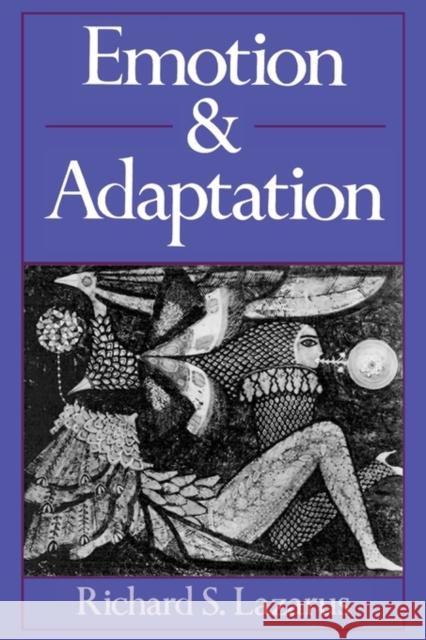Emotion and Adaptation » książka
Emotion and Adaptation
ISBN-13: 9780195069945 / Angielski / Twarda / 1991 / 576 str.
Emotion and Adaptation
ISBN-13: 9780195069945 / Angielski / Twarda / 1991 / 576 str.
(netto: 608,66 VAT: 5%)
Najniższa cena z 30 dni: 590,90
ok. 16-18 dni roboczych.
Darmowa dostawa!
In this landmark work, Richard Lazarus -- one of the world's foremost authorities -- offers a comprehensive treatment of the psychology of emotion, its role in adaptation, and the issues that must be addressed to understand it. The work provides a complete theory of emotional processes, explaining how different emotions are elicited and expressed, and how the emotional range of individuals develops over their lifetime. The author's approach puts emotion in a central role as a complex, patterned, organic reaction to both daily events and long-term efforts on the part of the individual to survive, flourish, and achieve. In his view, emotions cannot be divorced from other functions--whether biological, social, or cognitive--and express the intimate, personal meaning of what individuals experience. As coping and adapting processes, they are seen as part of the ongoing effort to monitor changes, stimuli, and stresses arising from the environment. After defining emotion and discussing issues of classification and measurement, Lazarus turns to the topics of motivation, cognition, and causality as key concepts in this theory. Next he looks at individual emotions, both negative and positive, and examines their development in terms of social influences and individual events. Finally, he considers the long-term consequences of emotion on physical health and well-being, and the treatment and prevention of emotional dysfunction. The book draws together the relevant research from a wide variety of sources, and distills the author's pioneering work in the field over the last forty years. As a comprehensive treatment of the emotions, the book will interest students, clinicians, and researchers involved in personality, social and clinical psychology, as well as cognitive and developmental psychology. It may also be used as a supplemental textbook in courses on the psychology of adjustment, emotion, and feeling.











